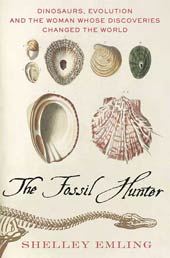
The heavens declare the glory of God; the skies proclaim the work of his hands. Day after day they pour forth speech; night after night they display knowledge. There is no speech or language where their voice is not heard. Their voice goes out into all the earth, their words to the ends of the world.
Psalm 19:1-4
For those of us who study the sacred depths of nature, no truer words have ever been spoken than these marvelous words in Psalm 19 that transcend all time and space. Nature speaks of God in a universal language. We are able to celebrate what nature has to tell us about God, just as we are able to celebrate the gift of science, which enables us to learn the language. The more we learn of the language, the more we realize that nature is singing the greatest hymn ever written, the hymn that tells not just of God’s glory, but also of God’s presence through all of creation:
Where can I go from your Spirit? Where can I flee from your presence? If I go up to the heavens, you are there; if I make my bed in the depths, you are there. If I rise on the wings of the dawn, if I settle on the far side of the sea, even there your hand will guide me, your right hand will hold me fast.
Psalm 139:7-10
Psalm 19 goes on to tell us that out of the glory of God, flows God’s wisdom. The source of the wisdom we see in nature, the Psalmist tells us, is also the source of the wisdom through which we are able to live our lives in a rich and meaningful manner. Indeed, in speaking of the precepts that emerge from God’s wisdom, the Psalmist tells us:
They are more precious than gold, than much pure gold; they are sweeter than honey, than honey from the comb. By them is your servant warned; in keeping them there is great reward.
Psalm 19:10-11
It is 3,000 years since the Psalmist wrote these marvelous words about what nature has to say of God. In hearing the proclamation of the skies and in seeing the declaration of the heavens, all he had to go by was the awe he sensed at the beauty of a sunrise, the sparkling stars in the night sky, the gentle light of a full moon, and the brilliant color of a magnificent sunset. All, in harmony, the great Hallelujah Chorus of nature sang; all sang of the glory of God.
We now know infinitely more about nature than the Psalmist did as he sat on that ancient Hebrew hillside. Science, a relatively recent invention, is a marvelous way of listening to the universal voice of which the Psalmist spoke. We need not fear science, the process by which we come to understand nature more fully. The more we listen to nature, the more clearly we hear the voice which tells us of the glory of the God who is “before all things and through whom all things are held together.”
And yet, sadly, there are those who choose to pay no attention to the powerful way that nature speaks to us in the twenty-first century. Still enshrouded in the darkness of the ancient Hebrew hillside, they are afraid to learn the vocabulary by which nature now speaks to us of God’s glory. They plug their ears in that darkness and want to hear nothing more. “We’ve heard all there is to hear,” they say, “Go back to sleep, morning will come soon enough.” How I wish they would wake up from their slumber and see that the voice of nature is still speaking of God’s glory and it is doing it with a vocabulary now–one that is rich and full of marvelous nuances about which the Psalmist could only dream.
There are others who are enshrouded by a different form of darkness. They hear the voice, but declare that it is just the whistling wind. “Go back to sleep,” they say, “it is just the sound of the wind blowing randomly in the night”. How I wish that they would wake up from their slumber and see that the blowing wind is really the breath of God.
Paul tells us it need not be like it is for so many:
For since the creation of the world God’s invisible qualities–his eternal power and divine nature–have been clearly seen, being understood from what has been made…
Romans 1:20
We don’t need to fear science–it enriches the vocabulary by which nature speaks to us of God’s glory. We can unplug our ears and listen fully to what nature has to say. With a crisp clarity it speaks to us of God’s eternal power and divine nature. Whether it be through the words of astronomy, earth science, physics, chemistry, or biology, the voice of nature calls out ever more clearly: the glory of God is beyond measure. The glory can be glimpsed by peering down into the structure of an atom, and it is the same glory that can be seen by searching the galaxies. The glory can be seen in the marvelous symmetry of the DNA molecule, which encodes all of the processes of life, just as it can be seen in the majesty of the processes themselves.
Nature’s voice still speaks of God’s glory and it does so in ever-new ways that are more beautiful than we can possibly think or imagine. Thus to study science is to feel a little like Moses: we want to see the glory, but the more we see the more we realize we’re peeking out from behind a cleft in the rock. Sometimes we feel a little like Elijah, the more we hear, the more we realize that we’ve only heard a whisper. We feel a little like Peter and John who for a few brief moments saw the glory of Jesus, Elijah, and Moses on the Mount on Transfiguration, only to have it quickly enshrouded by a cloud. Even now, even today, all we get is glimpses and hints that there is still more–much more.
So nature pours forth speech and displays knowledge. But it hasn’t been enough for only nature to speak. God chose to break through nature to visit this little corner of the universe 2,000 years ago in order to tell us by actions, rather than words, the most poignant message of all:
For as high as the heavens are above the earth, so great is his love for those who fear him; as far as the east is from the west, so far has he removed our transgressions from us. As a father has compassion on his children, so the LORD has compassion on those who fear him; for he knows how we are formed, he remembers that we are dust. As for man, his days are like grass, he flourishes like a flower of the field; the wind blows over it and it is gone, and its place remembers it no more. But from everlasting to everlasting the LORD’s love is with those who fear him…”
Psalm 103:11-17
Looking out at nature allows us to see ourselves more clearly. We are dust. We are blades of grass that come and go. We are flowers that bloom for a while and then are changed. But looking beyond nature, we learn of one thing that lasts for eternity. We learn of a glorious God who has shown us firsthand 2,000 years ago that above all else, he is love. The most glorious message in all of creation is a gentle whisper telling us we are kept in that love. And there we reside forever and ever.

